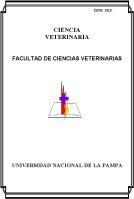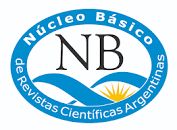Estudio de las propiedades antiinflamatorias de Marrubium vulgare
Keywords:
Marrubium vulgare, LabiataeAbstract
Marrubium vulgare (Malvarubia) is an adventitious plant broadly distributed in Argentina. Popular medicine attributes it diuretic, anti-inflammatory, febrifugal and expectorant properties. This work was carried out with mice using the test of the carragenin with the purpose of confirming the anti-inflammatory action. Ethanolic, hydroalcoholic, chloroformic and aqueous extracts from 1 g of dried up air parts of Marrubium vulgare in a carboxymethylcellulose and Tween 80 suspension, were respectively administered per os, one hour before the application of a carragenin solution in the plantar pad, to four groups of five animals each. The control group received a dose of the excipient and the witness group got one of Piroxicam per os, an hour before the carragenin injection. The inflammation was evaluated by measuring the inflammatory edema in the different groups at 3, 5 and 7 hours after to the carragenin application. The ethanolic extract inhibited the inflammatory edema in a 49%, respect to the control group, three hours after the carragenin administration. The hydroalcoholic, chloroformic and aqueous extracts inhibited the edema 4%, 35% and 18% respect thecontrol group. A comparative study administering different dose of ehtanolic extract from 0,5, 1 and 2 g of dried up Marrubium vulgare, evidenced that the ethanolic extract from 1 g of the plant, possesses a significant anti-inflammatory effect 3, 5 and 7 hours after administration respect the control group. These values of the edema inhibition are similar to those obtained with a 30 mg/kg of Piroxicam doseDownloads
Downloads
Published
How to Cite
Issue
Section
License
Al momento de enviar sus contribuciones, los colaboradores deberán declarar , de manera fehaciente, que poseen el permiso del archivo o repositorio donde se obtuvieron los documentos que se anexan al trabajo, cualquiera sea su formato (manuscritos inéditos, imágenes, archivos audiovisuales, etc.), permiso que los autoriza a publicarlos y reproducirlos, liberando a la revista y sus editores de toda responsabilidad o reclamo de terceros , los autores deben adherir a la licencia Creative Commons denominada “Atribución - No Comercial CC BY-NC-SA”, mediante la cual el autor permite copiar, reproducir, distribuir, comunicar públicamente la obra y generar obras derivadas, siempre y cuando se cite y reconozca al autor original. No se permite, sin embargo, utilizar la obra con fines comerciales.



4.png)


7.png)



